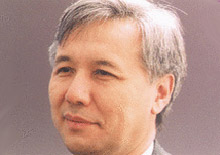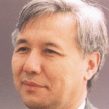
NATO-Ukraine Partnership Hobbled Ahead of NATO’s Anniversary Summit
Publication: Eurasia Daily Monitor Volume: 6 Issue: 39
By:

NATO’s most ambitious, most highly developed, and for a time most promising partnership, the one with Ukraine, is sliding backward despite efforts at NATO headquarters to keep it on track. Ukrainian authorities and certain West European governments within NATO share responsibility for the backsliding. The alliance’s upcoming summit will have to book this setback among a host of others that confound NATO on its 60th anniversary.
The pre-summit meeting of 26 allied Defense Ministers held on February 19 and 20 in Cracow reviewed this troubled partnership in a revamped NATO-Ukraine Commission in the 26 + 1 format. Chairing the proceedings, NATO Secretary-General Jaap de Hoop Scheffer gave assurances of "continue[d] support for Ukraine’s [defense sector] reforms and preparations for NATO membership." The Commission would monitor the implementation of Ukraine’s defense sector reforms and focus on the first Annual National Program (ANP) in that regard. "We are determined to continue to develop this strategic partnership," de Hoop Scheffer assured the Ukrainian delegation (NATO release, February 20).
Others struck a different note, however. German Defense Minister Franz-Josef Jung made it clear at the Cracow ministerial meeting that Berlin did not want ANPs with membership-oriented content for Ukraine and Georgia (Financial Times Deutschland, February 21). France was even blunter. During NATO’s recent Security Conference in Munich, French President Nicolas Sarkozy took aim at Ukraine and NATO’s open door in one swipe: "If you see the light in the window, it does not mean that you must go knocking at the door" (Ukrayinska Pravda, February 11).
Such remarks undermine the credibility of the alliance’s official Open Door Policy and can compromise the chances of NATO-assisted reform efforts in Ukraine. At the Cracow meeting, Ukrainian Defense Minister Yuriy Yekhanurov reminded the assembled defense ministers, "It is extremely important to maintain the principle of NATO’s open door, which gives individual [aspirant] countries their chance to have their security guaranteed" (RFE/RL, February 20).
Ukraine’s defense and security sector reforms have been stalled since 2005 amid the Orange crisis of institutions (confounding the hopes invested in the Orange project) and seem to have run out of resources since the onset of the economic crisis in
late 2008 in Ukraine. The country’s defense budget has declined to 0.8 percent of GDP in 2008 and 2009, the lowest level since Ukraine became independent, according to Ukrainian officials during the Cracow ministerial meeting (Interfax-Ukraine, February 20). President Viktor Yushchenko lamented this situation, without suggesting remedies, in remarks broadcast on Air Defense Forces Day (ICTV, February 20). Even Ukraine’s sole airborne brigade has had its gas supply cut off because of debts and is now using wood stoves (TV Ukrayina, February 20).
"The crisis has hit Ukraine very hard, the times are dire," de Hoop Scheffer acknowledged. But even this situation would not justify delays in the financing of military reforms. Maintaining its bloated, obsolete military forces would ultimately cost Ukraine much more than reforming the forces. Ukraine’s Defense Ministry is trying to preserve the existing level of troop contributions to NATO-led peacekeeping missions in Kosovo and several African countries. The ministry intends, however, to reduce considerably the number of in-country troop exercises and air force flights in 2009 (Interfax-Ukraine, February 20).
Ukraine remains the only NATO partner that has consistently participated in all of the alliance’s operations and missions over the years, with indispensable contributions in some cases. Meanwhile, an absolute majority of Ukraine’s population does not want the country to join NATO as a member. Such a disjunction is unique to Ukraine and the NATO-Ukraine relationship. For another unique discrepancy, NATO shows far greater interest in political relations with Russia than with Ukraine, even as Russia obstructs while Ukraine materially supports NATO’s goals and policies.
At the Cracow ministerial meeting, Yekhanurov assured NATO that "Ukraine’s chosen course to join the Euro-Atlantic community is beyond question" (UNIAN, February 20). As a Yushchenko loyalist, however, Yekhanurov cannot speak for the majority of Prime Minister Yulia Tymoshenko’s government, let alone a majority of the parliament.
Tymoshenko is now distancing herself from the goal of membership in NATO. In her speech at NATO’s Security Conference in Munich she cited Russia’s opposition to that goal and the split in Ukrainian public opinion regarding NATO. On that basis she argued that Ukraine’s best option would be to join some kind of all-European collective security system in which Russia would also be a full participant (Ukrayinska Pravda, February 11). As she prepares to enter the presidential election campaign later this year, Tymoshenko is clearly and inevitably backtracking on her earlier support for Ukrainian membership in NATO.
In this situation it may not be surprising that Kyiv has been slow to develop the Annual National Plan for 2009. The Cracow ministerial meeting "tried to stimulate the Ukrainian Defense Ministry and other relevant authorities to proceed with drafting and completing the ANP" (press release, February 20). U.S. Defense Secretary Robert Gates suggested to the Ukrainian government to reach an internal consensus about the next steps in this regard (RFE/RL, February 20).
Recouping at least some of the earlier momentum in NATO-Ukraine relations does not seem possible before NATO reaches internal consensus on the scope and pace of Ukrainian ANPs and before Ukraine’s presidential elections, that is to say, probably not for another year.




